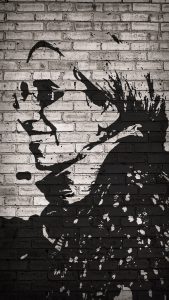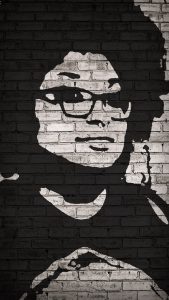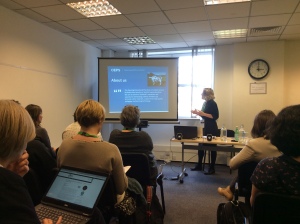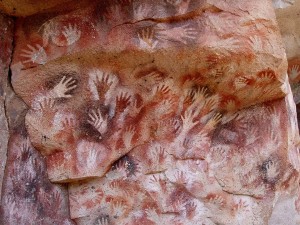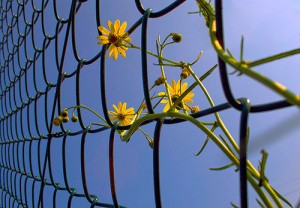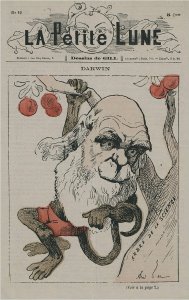Blog Archives
Looking back and looking forward
This is the final post on the OEPS blog before it transitions to an archive. As such I’d like to use it to reflect on the big themes that the project set out to address.
I joined the project following more than a decade of work in the Scottish widening participation scene and recent experience of exploring the use of open educational resources with organisations that support non-traditional students attempting to gain access to further and higher education.
OEPS was distinctive in foregrounding social justice and widening participation but I think I underestimated the challenge that this presented. The Open Education movement grew out of a belief that educational material should be a public good. And this belief has informed developments over nearly two decades. However, at the start of the project it was clear that there were very few points of contact between the Learning Technology and Widening Participation communities in Scotland. Although the latter community was beginning to grapple with issues of digital participation, knowledge of the affordances of open education or indeed of the existence of OER was very limited.
So for the project bringing people together from a range of different backgrounds was critical and we prioritised this in organising events and in targeting possible partners. We’ve written more about this elsewhere and the final project report provides a useful summary of this engagement.
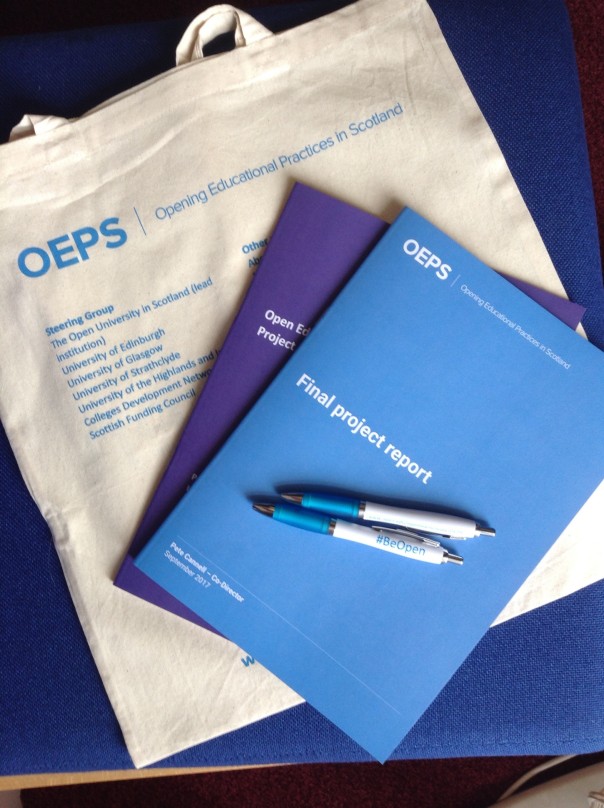
As we developed a network of partners it rapidly became clear that, while the language of open education and the technicalities of open licensing were not well known, a broad range of organisations and individuals were grappling with the social consequences of digital technology. In the OEPS final report we note that
‘… in the last ten years there has been a historic shift in the way that society uses digital technology. Ownership of smart digital devices has grown rapidly. An OFCOM report[1] published in 2015 found that 66% of UK adults owned a Smartphone, up from 39% just three years before. This has had an impact on culture, communication and self-directed learning. However, the links between digital engagement and the digital literacies required for learning are not straightforward. In 2009 the JISC report on Learning Literacies in a Digital Age[2] noted that learners in general are ‘poor at deploying their digital skills in support of learning’. This remains the case for young people entering higher education direct from school and evidence collected during the OEPS project suggest that this is also the case for non-traditional students.’
It’s widely accepted that good practice in supporting students from a widening participation and student retention perspective should be part of the mainstream rather than an add on. Taken as whole I would argue that the experience of the OEPS project suggests that this is also true of good Open Educational Practice.
At the outset we were concerned by the skewed demographics of participation in Open Education, which suggested that historic inequity was being reproduced or even accentuated. Looking at open education through a widening participation lens, and working closely with non-traditional learners and with the organisations that support them, helped us develop valuable insights into the way that stubborn and persistent barriers to educational participation are expressed in digital environments. Digital technologies open up new possibilities and new barriers for students. In developing exemplar open courses with a range of partners the OEPS project provides evidence that these barriers can be overcome. Much more work is needed in this field but critical to success and at the core of good practice are a number of simple issues:
- Developing practice that puts student experience and student context at the centre.
- Understanding the challenges that non-traditional students face.
- Making the maximum use of co-design – involving practitioners and students in the process of making or remixing course material, study approaches and assessment.
- Maximising opportunities for social interaction and peer support in course design. Material delivered online can be used in a whole range of online and face-to-face blends.
- Holding firm to a belief that technology can support education but that it’s a means to an end and not an end in itself.

Image by Shamina Remesh. Becoming lost in a digital world CC BY-SA 2.0
Taking all this on board in a consistent way would be a big step forward. Although not the whole story since, as Maha Bali outlined in her presentation at the final OEPS event, open is always mediated by power and privilege. I would argue that in the digital world that potential students inhabit addressing these issues is a necessity and not a choice if we are to meet the ambitious widening participation targets set by the Scottish Government. But if we can get it right the advantages will accrue to all our students.
Pete Cannell
OEPS Co-Director
[1] http://stakeholders.ofcom.org.uk/market-data-research/market-data/communications-market-reports/cmr15/ accessed 29 March 2016
[2] Learning Literacies in a Digital Age, Beetham et al, 2009 https://www.webarchive.org.uk/wayback/archive/20140614200958/http://www.jisc.ac.uk/publications/briefingpapers/2009/learningliteraciesbp.aspx#downloads
Let’s stop reinventing the wheel and #BeOpen to sharing our work
Guest blog by Linda Lapere, Lecturer in Education at the University of Dundee.
As someone who has worked in education for 19 years I am familiar with many different forms of online learning and web-based materials but had never heard of Open Education. When I saw the hashtag #OpenEd I was keen to find out more.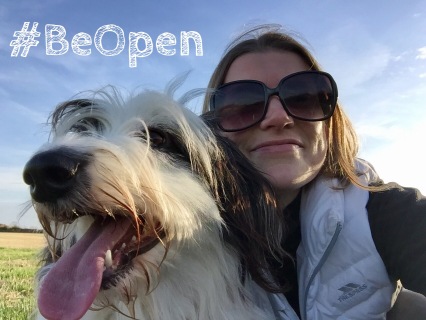
In education, we are traditionally extraordinarily good at reinventing the wheel which thankfully, is slightly reducing in the digital age we are now living thanks to a multitude of educational websites. However, many of these operate as businesses, charging educators either for downloading their resources or accessing their website. I see Open Education as a means of embracing equality in education. Firstly, we are all professionals and can surely evaluate the usefulness and quality of resources independently as not everything which is online will necessarily be correct or appropriate for your learners. Secondly, not all educators can afford the subscriptions some websites are charging (some are more than your average gym membership) so again this levels out the playing field. I always find it interesting that education is one of the few professions where teachers spend their own money on resources – do doctors buy their patients drugs? Thought not.
Open Education means that all educators have access to free resources which can be edited and reused as you see fit. This can save us all time both in researching concepts and what the current research is saying as well as the time it takes to create these resources. Often laptops and pcs provided by educational establishments have restricted access to either certain websites or software sometimes making it difficult to create the kind of resource which would benefit your learners. It also requires a certain amount of skill to produce some of these resources such as video editing, enhancing graphics or creating interactive presentations and unfortunately we do not always have these precise skills. However, if this kind of material, particularly videos or interactive resources are already available through Open Education it can only benefit those in education.
I feel the challenges with Open Education are encouraging this sense of community amongst those in education, both current teachers and our students as well as the huge range of possibilities for its use. Let’s stop reinventing the wheel and sharing our free expertise instead to help others in the profession!
This guest post from Linda Lapere is published as one of many celebrating Open Education in the run up to the OEPS final event, The Promise of Open Education at Dynamic Earth, Edinburgh on Monday 11th September. Sign up for the event
Save the date! OEPS final event
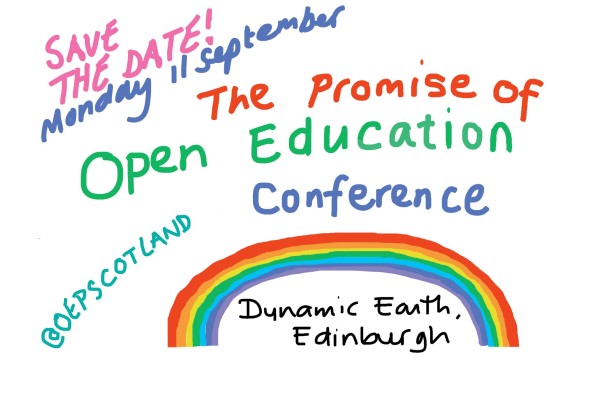
OEPS final event save the date (by Anna Page, CC BY NC SA 4.0)
‘The promise of open education’ conference is the final event of the OEPS project. It will take place on Monday 11th September in Dynamic Earth, Edinburgh. Further details about the event will be made available soon, however please save the date in your diaries.
‘Supporting collective learning’ course launched
The latest OEPS open educational resource (OER) Supporting collective learning in workplace and community settings is now live. The course will support anyone involved in organising informal learning in the workplace or in community settings, for example Union Learning Representatives, support workers, volunteers with third sector organisations or people with similar roles in their workplace or community. The course explores how groups of learners can use free online courses. The course draws on the experiences of the OEPS project in working with a wide range of informal educators in using open educational practices and resources.
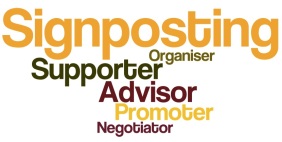
‘Wordle‘, created by Pete Cannell at wordle.net, licensed as Public Domain CC0
Commenting on the launch of the course, OEPS Co-Director Pete Cannell, said: “We’re delighted to launch this course which pulls together the good practice of many informal educators across Scotland. Open courses like this one enable individuals who can’t access college/university to engage in learning at a time, place and pace that suits them, this in turn widens access to education and if they want, can be a stepping stone to formal education. We’ve openly licensed this course so it can be shared, adapted and rebranded by other organisations such as unions and charities to use in their own ways without copyright restriction which we hope will widen its reach even further.”
Reflections on OE Global and OER17 – part 2
by Anna Page (OEPS project)
After spending time at OE Global in Cape Town, 4 weeks later I was attended the first day of OER17 in London, chaired by Josie Fraser and Alek Tarkowski, where I was fortunate to hear two great keynote speakers challenge our perceptions about open education. Maha Bali encouraged us to think about how OER might be viewed in situations where intellectual property of material is less relevant to teachers because of their country curriculum situation or where academic freedoms, taken for granted in many Western democracies, are not available to certain groups of society, particularly women. Or where access to the internet was limited or restricted, depending on ability to pay (access to the internet is never free). She pointed out the inequalities of treatment of internet users with some being more vulnerable to harassment, trolling or surveillance than others. In addition the interpretation of accessibility of materials came under scrutiny. Maha Bali asked the question about whether openly licenced works follow the letter but not the spirit of openness. She asked us to think about which of two options was more openly accessible: the use of complex academic language in an openly licenced article or material written in accessible language but carrying a more restrictive Creative Commons licence, such as no derivatives. She challenged us to think about the model of western funding for third world projects which did not explore the needs of the beneficiaries and impose solutions which subsequently don’t work or influence those seeking funding to conform to western ideas of what should work, without due regard for the cultural and contextual needs of their communities.
Maha opened up her keynote to get live open educational practice stories from the audience, which meant the development of her keynote was not ‘complete’ until she was delivering it as she responded to each story and led into the next prepared idea seamlessly, therefore breaking the accepted view of a lecture being about delivering ideas in one direction of transmission rather than exchange, a demonstration of ‘open educational practice’ in action. She also explored the birth of ideas and intentions (comparing them to seeds) and how they might be nurtured first in private (hidden deep inside) then emerge into the public when they were ready to be shared (make explicit) where nurturing would need to continue by all involved to reap the rewards.
Later, in the second keynote, Diana Arce got us to think about the use of art as a tool for involving people in political activism. She took us through a thought-provoking and lively journey of how art in public spaces is used and interpreted taking into account who commissions it and the location in which it is placed. She showed how audience involvement in its creation was essential to empower people to understand, think and grow, offering them an alternative narrative via open spaces to share art and dialogue. The essential message was “don’t tell people what to think”, use art to help their ideas and contributions emerge. Open projects could use artists as strategists for development of open resources, going to where people are in order to engage them in the act of creation and knowledge building.
After the first keynote at OER17, I attended a panel discussion called Perspectives on Open Education in a World of Brexit & Trump (#trexit), with panellists Maha Bali, Lorna Campbell (from Open Scotland), James Luke and Martin Weller. In addition to the four panellists, there were video recordings from 4 others who contributed real life examples of how these votes which have changed the global political landscape are affecting their academic practice, which the panel then discussed and opened to the floor for comments and questions. It was sobering to see how the laptop ban on flights from certain countries to the US and UK is seriously affecting the progress of a PhD student and had also negatively affected keynote presenter Maha who had travelled from Egypt without her laptop or presentation on a memory stick (she had put it into cloud storage online before travelling). The theme of the conference was very evident in this discussion, and it was clear that ‘Open is always political’.
The parallel sessions in the afternoon offered plenty of choice and inevitable clashes – my OEPS presentation was on at the same time as the OEPS presentation given by Ronald Macintyre. Mine was the third in a group of 3, the first of which was about Academic confidence building with student use of Wikipedia, as they learn to collate Wikipedia subject pages (enhancing their digital literacy) and the second was an introduction to the MOIN project which is just starting to explore the challenges of cross-sectoral use of OER in Germany, where significant barriers still exist. These include legal barriers (licencing) and the lack of knowledge about where to find OER, training and digital literacy, all issues we grapple with on this project. It seemed fitting to follow this with the OEPS presentation about the evolution and further development of the OpenLearn Create platform for hosting open courses and the open educational practices modelled by the OEPS approach to course building in partnership. Several questions and a lively discussion followed the three presentations, including questions to me about whether OpenLearn Create would get inundated by courses which might not follow good practice or break the terms of use of the site. My response was that since the redesign in January we have had one spam course so far which has been taken down and that the Terms of use need to be more explicit in site usage and on data protection, so there is further work to do. However so far the site has not been flooded with lots of new courses built by third parties on their own, most people seem to be quite tentative in getting started without contacting us first.
I also enjoyed the subsequent parallel session which included the OEPS presentation Exploring International Open Educational Practices presented by Beck Pitt, Bea De Los Arcos, and Michelle Reed in which they explored various definitions of OEP, some of the case studies and the emerging framework of open practice based on the research to date. This was followed by Catherine Cronin and Laura Czerniewicz’s Critical pragmatism and critical advocacy: Addressing the challenges of openness which explored how purist definitions of open can be a limitation to open practice, with pragmatism helping to address the challenges. Then Michelle Harrison and Irwin Devries presented Advocating for Open: the role of learning support professionals in changing practice, which reminded us that external online support networks are often the only source of support the lone open educational practitioner might have if their institution doesn’t have a policy or support mechanism for OER, and this has not changed much in the past two years, according to their research.
From my perspective, the key messages which crossed both conferences showed that the awareness of OER, what it is, how it can be used, reused, and created is still in its infancy in many educational organisations, let alone in the third sector and there is much to do to make it and the practices which enable it to become more mainstream. A rallying cry at OE Global was for OER advocates to be more vigorous in actively marketing OER and OEP. This would help to balance the professional HE marketing of their online lectures/open textbooks/MOOCs which often drowns out really good community produced OER which may have better pedagogical value than a series of online video lectures not viewed in their original context. The thorny question of how to measure the impact of OER was also voiced at both conferences, though to a certain extent good practice surrounding this question is explored in Becoming an open educator.
In addition, a strong message was that OER will not be adopted by learners and teachers if it is imposed, only if it is created collaboratively, The OEPS experience of collaborative open course production in partnership is one example of how this can work to the benefit of learners. Widening participation continues to be a strong theme of the OEPS project and will be discussed at the forthcoming Porous University seminar in May 2017. In both the OE Global and OER17 presentations I shared the questions we consider when we reflect on partnerships using open education: “if partners are looking to OER development as a way to fill structural holes in individual learning journeys, what are the implications for formal learning providers with a focus on widening participation? Does this mean that formal providers would have less of a role in widening participation if external organisations fill these holes or, more constructively, can formal providers see this as an opportunity to work more closely with external organisations to enhance their formal curriculum? By using OER created as a bridge to formal learning, learners can be provided with qualifications which directly relate to their career and lifelong learning opportunities?” (OEPS presentation extended narrative for OE Global 2017).
In a world of #trexit and austerity budgets which are reducing public services including education, it is all the more vital for HE, FE and third sector organisations to work in collaboration to ensure that a good education is open to as many people as possible.
Image credits: Josie Fraser and Alek Tarkowski welcome us to OER17, Beck Pitt presenting for OEPS at OER by Anna Page and licensed CC BY 2.0. Maha Bali and Diana Arce images by Josie Fraser for OER17.
What are the politics of open going to be at “OER17: The Politics of Open”
The call for papers for OER17 on the 5th and 6th of April is open, and the data for abstracts is looming, midday on the 16th of November as this “goes to press”. It is interesting to see politics in the title, as openness is seen “as a good thing” and there is often something oddly apolitical about the narratives around openness.
Occasionally one sees a paper in the OER world that looks critically at issues of participation. They are rare, and can tend to look at simple causes like digital literacy, individualising exclusion, treating not knowing as a deficit, rather than exploring the causes of the causes, exploring; social capital, intergenerational aspiration, social and cultural barriers or underlying structural inequalities. These different readings of exclusion, from the individualised, through social to structural, stretch us, they insist we make hidden causes visible.
Likewise, narratives on free platforms talk about creative destruction, disruptive innovation, or casualisation of work, of outsourcing of risk, how much for your data, and business models built on shareholders expectations of future value. Sometimes these things seep into discussion on Open Educational Resources and Open Educational Practices, but not often enough. After all, the promise was equity, not just equity of access as that is a plain numbers game, but equitable participation. This means taking a critical perspective on the rhetoric and the reality, looking at what this means for policy, in practice, and crucially pedagogically.
I think this conference may be different, OEP is changing, maybe this is “when worlds (finally) collide”. However, it is only going to be that kind of conference if it attracts papers from the unusual suspects. From scholars working in widening participation, with “critical perspectives” on free and open, it is only through developing those creative tensions that OER and OEP can start to become political. So submit a paper.
OEP is changing, is it a changing external environment and Darwinian adaptation through natural selection, or Lamarckian, passing on characteristics acquired during its life, or a bit of both?
Ronald Macintyre
From Gill Andre, 2011, “Caricature of Charles Darwin as a monkey on the cover of La Petite Lune, a Parisian satirical magazine published by André Gill from 1878 to 1879”, Public Domain, https://upload.wikimedia.org/wikipedia/commons/b/b5/Darwin_as_monkey_on_La_Petite_Lune.jpg
Some Thoughts on Open Badges, Recognition and Credit
The use of open badges as a way of recognising a short episode of learning is on the increase in Scotland. There have been significant changes since we started working on the OEPS project in summer 2014. It may be useful to categorise the use of badges in three ways.
- Awarding badges for the recognition of activity that contributes to continuing professional development (CPD). Examples of organisations taking this approach include Borders College (an early adopter), City of Glasgow College, Scottish Social Services Council and some Health Boards.
- The recognition of co-curricular and extra curricular activity; The University of Abertay is using open badges in the former context for its Law students and is considering whether badges might be integrated with the HEAR statement to recognise extra curricular achievements.
- To reward the successful completion of an openly licensed online course; The Open University now offers a suite of eleven such badged online courses (BOCs). A further 10 courses in the same style are scheduled for release during the rest of 2016. A small number of other badged courses have been developed through the OEPS project in partnership with Scottish Universities and Third Sector Organisations. The number of individuals in Scotland with one or more such badges is rising rapidly.
The landscape is evolving and diverse. Open Badges are awarded against a wide range of criteria. In some cases this may simply be for attendance or participation. In others, students are required to submit some evidence of learning such as a reflection on how a workshop had influenced their professional practice. The OU BOC and OEPS badges are typically awarded for successful completion of one or more online quizzes.
While, particularly in the CPD field, digital badges are being awarded for face-to-face activity and traditional forms of learning, certificates are also being used to recognise achievement on online courses. Free courses, offered by MOOC platforms such as FutureLearn and Coursera, and by providers such as ALISON, may supply successful learners with certificates for a fee. This is part of an emerging business model in online education.
It’s unusual for MOOCs or free openly licensed (OER) courses to be a given a level. However, FutureLearn the Open University and the University of Leeds are offering a route from one of their free online courses to study on a degree or MBA programme.
Most forms of study that result in the award of an open badge represent relatively few hours of learning, typically in the range 5 – 25 hours (although there are a few outliers at both ends of the range). Thus, before considering validity and level, the potential credit value of a single badge is normally small. However, the significance of credit is contextual and not necessarily directly related to size. While for a graduate, 2 credit points at SCQF level 7 might not be very relevant, for an adult learner with no, or little, post compulsory educational experience it might be very important.
Currently recognition based on criteria that require evidence of reflection or other complex outcomes is normally assessed manually before the badge is enabled. This can be expensive and sets limits on scale. Online courses with quiz assessments allow for the awarding process to be automated and can therefore deal with much greater numbers. However, although there has been some very creative use of quizzes (see for example ‘Caring Counts’) this method of assessment does curtail the kinds of learning outcomes that can be effectively assessed. So, for example, the Understanding Parkinson’s course developed by OEPS asks learners to engage in significant reflection on practice and on what they have learned through the medium of a log – however, the success criteria for the course are currently based on more restrictive quiz based questions. Evaluation of this and other similar courses suggests that the reflective activity is a strong impetus to learning. The OEPS project is investigating whether it’s possible to develop automated peer assessment that could work at large scale.
As the numbers of participants on badged courses increases there will be individuals who have portfolios of badges in their Mozilla backpack that may add up to a significant investment in learning. What should be the attitude of colleges and universities to this kind of experience? There is potential for much greater use of RPL and where the badged experience could feed into an ‘empty box’ type module that supports the award of credit.
Pete Cannell



